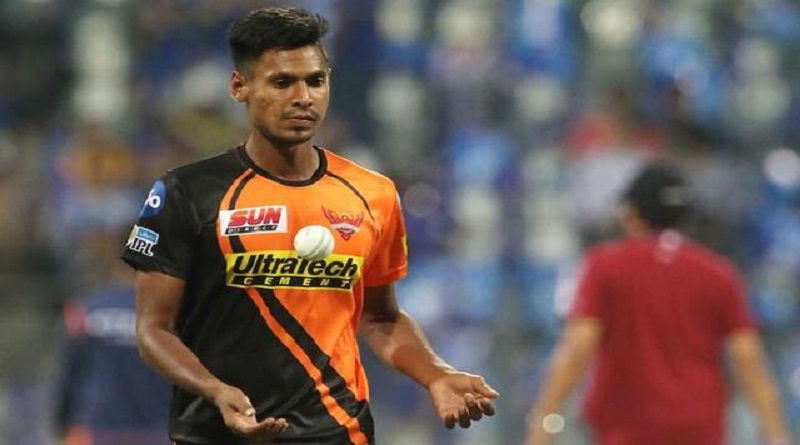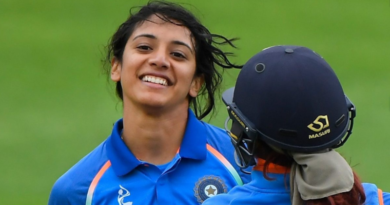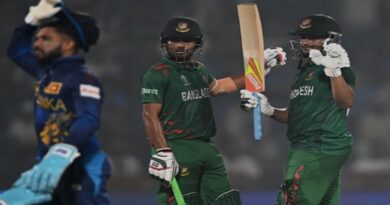Suspense on Mustafizur Rahman’s entry in IPL 2025, BCB stuck between BCCI and PCB

New Delhi/Dhaka: While the excitement of the Indian Premier League (IPL) 2025 is at its peak, a fresh controversy has made headlines in the cricketing world. The participation of Bangladesh’s experienced fast bowler Mustafizur Rahman in this season remains uncertain. The issue isn’t just about fitness or selection — it’s about the ongoing political tension between India and Pakistan, in which the Bangladesh Cricket Board (BCB) finds itself entangled.
Mustafizur was expected to join the Delhi Capitals as a replacement player, bringing in his wealth of experience and left-arm pace skills. However, his involvement has been stalled due to BCB’s hesitation in granting a No Objection Certificate (NOC). This hesitation stems not from cricketing reasons alone but from the sensitive geopolitical climate in South Asia. Given the diplomatic complexities, BCB is taking a cautious approach. The situation highlights how external politics can directly impact the functioning of franchise cricket, affecting not only team strategies but also a player’s international commitments and financial prospects. The cricketing world now waits anxiously for clarity.
Mustafizur Picked for IPL, But NOC Still Pending
Delhi Capitals recently selected Mustafizur Rahman as a replacement for Australian batsman Jake Fraser-McGurk, who exited the tournament. However, for Mustafizur to play, he needs a No Objection Certificate (NOC) from the BCB, which has not yet been issued.
A BCB official told ‘Cricbuzz’ that the board is evaluating the situation thoroughly before taking any decision. “We’re not saying we won’t allow Mustafizur to play,” the official stated, “but we also cannot ignore the current situation.”
India-Pakistan Tension at the Core
The recent escalation of tensions at the India-Pakistan border has affected various aspects of international cricket. The ongoing tussle between the Pakistan Cricket Board (PCB) and the Board of Control for Cricket in India (BCCI) has now taken a diplomatic turn. In this evolving scenario, BCB’s position as a third-party board has become highly sensitive.
BCB is trying to strike a balance — they don’t want to upset PCB, but at the same time, they can’t afford to strain their relations with BCCI, especially with many future international tournaments scheduled in India where Bangladesh’s participation is essential.
Mustafizur’s Confusing Social Media Post
The issue wasn’t limited to just the NOC. Mustafizur recently posted on social media, stating he would be playing “against them in UAE,” which led to widespread speculation. People began wondering whether he was referring to missing the IPL to play in an international series for Bangladesh instead.
It was later clarified that his post referred to an upcoming T20I series between Bangladesh and the UAE, but by then, the speculation had already gone viral.
Delhi Capitals on Edge
Delhi Capitals are already dealing with injuries to Mitchell Starc and another key pacer. In such a situation, Mustafizur’s experience and left-arm pace could be crucial for the team. If he doesn’t receive the NOC or has to leave mid-season for national duty, it could significantly impact the team’s campaign and strategy.
BCB’s Diplomatic Tightrope
The BCB is treading carefully. The board neither wants to explicitly ban Mustafizur from playing in the IPL nor dismiss Pakistan’s concerns outright. It’s a delicate balancing act where the player’s participation depends not just on cricketing factors, but also on regional geopolitics and diplomacy.
Conclusion
Mustafizur Rahman’s participation in IPL 2025 still hangs in the balance. The decision from the BCB is eagerly awaited — not just by Delhi Capitals, but by cricket fans around the world. This controversy once again highlights that cricket is no longer just a sport; it’s increasingly becoming a complex mix of diplomacy, politics, and national interests.
For players like Mustafizur, who are caught between national duties and lucrative franchise commitments, such situations can be mentally and professionally challenging. A delay in decision-making not only affects team strategies but also the player’s rhythm and confidence. The incident also raises important questions about how global leagues like the IPL should prepare for external political factors that may affect player availability. As the tournament progresses, all eyes will remain on BCB’s final call — a decision that could set a precedent for similar cases in the future.






You could definitely see your skills within the work you write. The sector hopes for even more passionate writers like you who aren’t afraid to mention how they believe. All the time go after your heart.